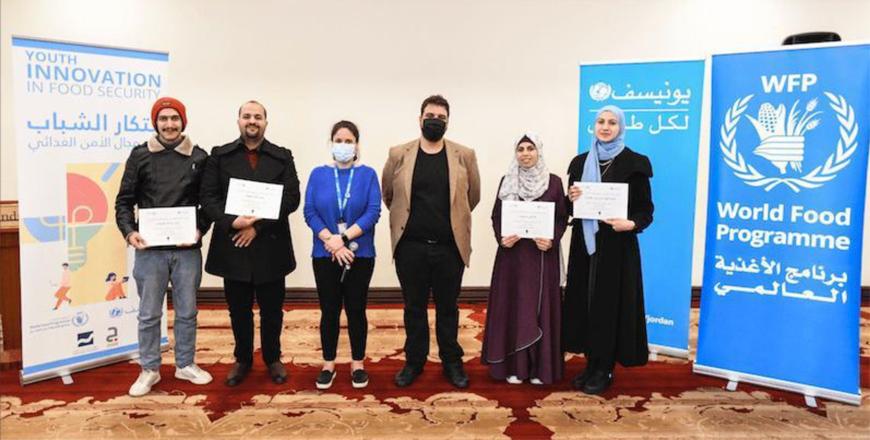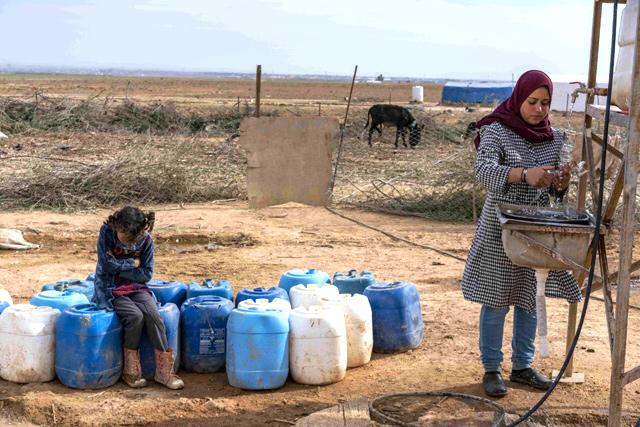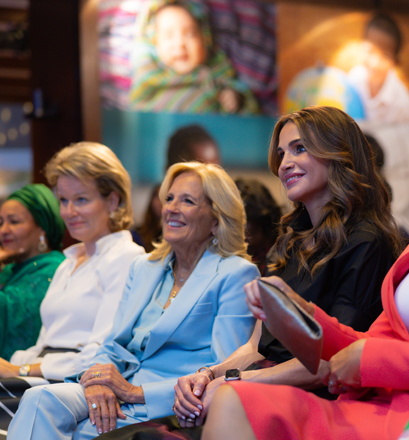You are here
World Children’s Day marked with focus on climate crisis
By Maria Weldali - Nov 20,2021 - Last updated at Nov 20,2021

World Children’s Day, UNICEF’s global day of action for children which is celebrated every year on November 20, is marked this year under the theme ‘A Better Future for Every Child’ (Photo courtesy of UNICEF)
AMMAN — World Children’s Day, UNICEF’s global day of action for children which is celebrated every year on November 20, is marked this year under the theme “A Better Future for Every Child”, urging children and young people to raise their voices on the issues that matter to their generation.
Youth all throughout the Kingdom are joining their peers worldwide to speak out on issues from climate change and inequality, to mental health and education disruptions caused by the COVID-19 pandemic. They are also calling on adults to build back a better world for them and society’s most vulnerable children, said a UNICEF statement.
“The climate crisis and water scarcity pose an unprecedented threat to the rights of all children and youth in Jordan. This World Children’s Day they are delivering a clear message to adults – we must act with urgency to protect their futures,” said UNICEF Jordan representative Tanya Chapuisat in the statement.
Waleh Dam has gone blue for World Children’s Day to bring attention to the crises that affect the lives of children, such as climate change and the impact of water scarcity on the youth in Jordan
Events and festivities took place across the Kingdom in UNICEF-supported Makani centres to mark the day, and the iconic heritage site Petra joined UNICEF’s global Go Blue campaign in support of child rights, the statement said.
UNICEF also unveiled the “Big Changes Start Small” mural in Amman.
The mural, created by young artist Batool Edais, focuses on water scarcity in Jordan, and aims to inspire youth to hold adults accountable for creating a safe and sustainable future.
To build better futures for children in Jordan and across the world, they need to be educated and empowered with the right life skills, said Maha Al Manaseer, a Jordanian science teacher on Saturday.
“What is really important is that we teach our children that they can make a difference, through encouraging age-appropriate independence and fostering self-reliance in them,” Manaseer added.
“Children are tomorrow’s leaders, therefore they deserve the world’s attention,” Shayma Awad, a Jordanian life coach who is experienced in child development, told The Jordan Times over the phone on Saturday.
Children should learn from an early age how to care for plants, by teaching them environmental responsibility and awareness, Awad said.
The current population of Jordan is 11,034,866, according to the Department of Statistics.
According to UNICEF, there are 3.8 million children aged under 18 in Jordan, over 40 per cent of the population. Of these, almost 30 per cent are non-Jordanian — including many refugees from neighbouring countries.
Related Articles
AMMAN — The United Nations World Food Programme (WFP) and the UN Children’s Fund (UNICEF) awarded seed funding to five young women and men,
AMMAN — Young people living in Jordan are among those at risk of the impacts of climate change, which threatens their health, education and
AMMAN — Her Majesty Queen Rania Al Abdullah attended UNICEF’s Champions for Children: Child Rights at the Heart of the SDGs reception event














